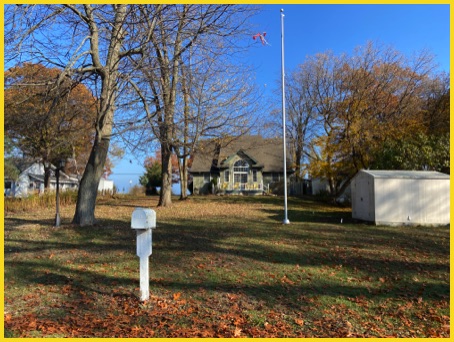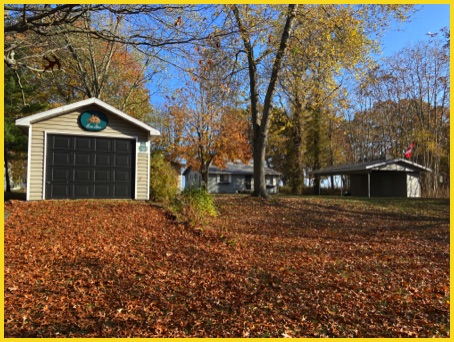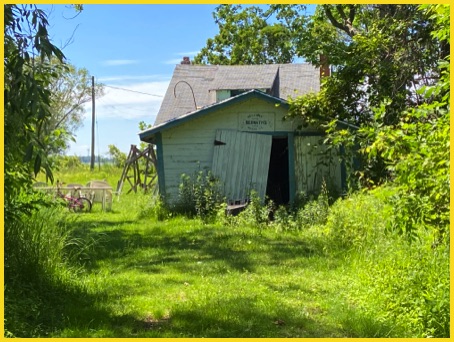Myth: Our septic systems are poisoning the groundwater.
Fact: This myth is absolutely unfounded. Two percolation studies done by respected & qualified independent engineering firms both confirmed the groundwater in the cottage community is free of fecal coliforms and perfectly safe to drink. Note that the sample wells were located in the most densely-populated part of the park and the samples were drawn at the height of the summer cottaging season. Yet so-called environmentalists continue to ignore the evidence and perpetuate this awful lie.
Myth: The park office gives us free bottles of water because our wells are poisoned with sewage.
Fact: We have no idea where this bizarre claim came from but it's completely untrue. As you read above, any allegation that our groundwater is unsafe is unfounded. While some cottage families may prefer the taste and convenience of bottled water, many others drink directly from their taps (sandpoint wells) and have for years. For the record, the park has never provided free bottles of water for use by cottagers or anyone else.
Myth: Cottagers have introduced non-native plant species such as Japanese Barberry and White Poplar into the park.
Fact: This is a qualified "yes". Qualified, because the concept of non-native species is a fairly new idea compared to the 125+ year history of cottages in Rondeau. There was a time when any and all plants and flowers were permitted to be planted on cottage lots; back then, nobody knew any different. And "senior" cottagers have reported that some now-prohibited plant species were welcomed into the park by the Superintendents of the day because they were considered hearty and attractive. Now, of course, we are all better-educated in the concept of non-native species and this simply doesn't occur anymore.
Myth: The presence of cottagers harms species-at-risk.
Fact: Ontario Parks calls Rondeau the "Crown Jewel of biological diversity" in its 340-park system. Rondeau is home to numerous species-at-risk, and many of them live around our cottages. Five-Lined Skinks and Fowler's Toads most notably. This very fact disproves the myth; if our presence caused harm we would never see them. Especially after 125 years of cottaging. Ontario Parks biologists have credited the health and success of species-at-risk populations in Rondeau to the inevitable side-effects of human presence, such as the shelter afforded by woodpiles, decks, and boardwalks. In fact the Five-Lined Skink was once thought to be extirpated at Rondeau until biologists started looking around cottages and found lots.
Myth: Cottages dominate the park and squeeze-out nature.
Fact: Using the MNRF's own lot size data, all 278 cottage lots collectively occupy 46.6 acres which is only 0.58% of the park. To confirm, this is barely one-half of one percent of the park's 8,041 acres. By comparison, the main campground is much larger at 64 acres. The average cottage lot size is 0.17 acres; many are much smaller. Our lots are tiny; most are rectangular and almost all are hundreds of feet from the water's edge. In aerial photos of Rondeau it's tough to even spot the cottages.
Myth: Cottages have blocked the entire Lake Erie shoreline.
Fact: While approximately 75% of all cottages are on Lakeshore Rd, they are widely separated and many that once stood have since been demolished. Overall, cottage lots front 2.3 miles of the 6.2 mile Lake Erie shoreline within the park. Keeping in mind the cottages themselves are located hundreds of feet back from the lake, and the entire beach and dune system is public land and fully accessible to anyone at all times, it is accurate to say that two-thirds of the Lake Erie shoreline is not fronted by cottages. And Rondeau's cottagers have never once claimed any special right of access to the beach beyond what is granted to everyone else. It's not "our beach" and it never will be.
Myth: Cottagers damage the dunes and beach grasses with off-lot encroachment.
Fact: Off-lot encroachment has been a focus of education and enforcement in recent years. Decades ago off-lot encroachment was common and it was often done with the full knowledge and permission of the Superintendent of the day. However now it is well-known where our leased lot ends and cottagers claim no special right of access beyond it.
The Facts About Our Impact on the Park's Ecology...





Myth: Cottagers don't support environmental initiatives.
Fact: Over the years the cottage community has sponsored, supported, or participated in numerous environmental initiatives. We were the largest corporate donor to the Marsh Viewing Tower fundraising project and our individual members participate in bird counts, deer counts, and beach clean-ups. However we are most proud of our 1996 sponsorship of a scientific study entitled "An Assessment of Forest Ecosystem Health"...
From the introduction to the final report: "This project was Initiated and sponsored by the Rondeau Leaseholders Association, the organization representing the interests of the private leaseholders at Rondeau Provincial Park. Since the park's establishment in 1894, the leaseholders have been long-term users whose experience here is often longer than that of Park staff. The leaseholder community is made up of a cross-section of society who have diverse backgrounds, generally not related to park management or natural resources. However, their lay-perspective and long-term experience place them in a unique position to observe changes in the park over time. In recent years leaseholders have observed a "decline in the health" of trees and forests in the park and began to question the causes. The symptoms of this perceived health problem were continual blowdown of canopy trees (wind-throws), the death of canopy trees, a profusion of grape vines, and an increase in shrub thickets in areas previously occupied by canopy trees. Because the leaseholders did not entirely understand ecological processes and the management strategy, and perhaps they were unsatisfied with explanations given by OMNR staff, the Association decided to obtain an independent assessment of the forest ecosystem health of the park."
The ambitious and wide-ranging RCA-sponsored study directly resulted in the park adopting innovative forest management policies that are still being practised thirty years later. We are proud to have played a part in this groundbreaking stewardship research that has improved Rondeau's forest ecosystem health to the benefit of all park visitors.

